Water-Conscious Planting
Amity University Haryana employs water-conscious planting practices to promote sustainability and conserve water resources. Here are some key aspects:
- Native and Drought-Resistant Plants: The campus landscaping features native and drought- resistant plant species that require less water and are well-adapted to the local climate.
- Xeriscaping: This landscaping approach minimizes water usage by incorporating design techniques that reduce the need for irrigation, such as grouping plants with similar water needs.
- Smart Irrigation Systems: Automated irrigation systems are used to optimize water usage, ensuring that plants receive adequate moisture while minimizing waste.
- Mulching: Applying mulch around plants helps retain soil moisture, reduce evaporation, and suppress weeds, further conserving water.
- Educational Initiatives: The university promotes awareness of water-conscious planting practices among students and staff, encouraging them to adopt sustainable gardening techniques.
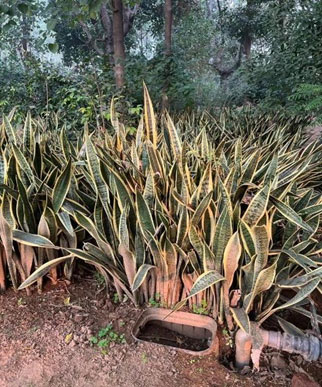 Snake Plant
Snake Plant
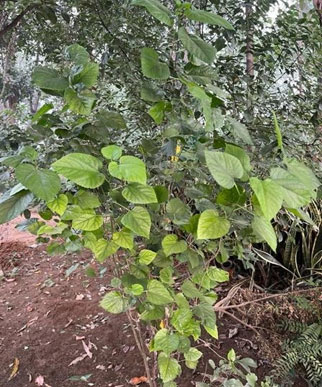 CamphoiraTree
CamphoiraTree
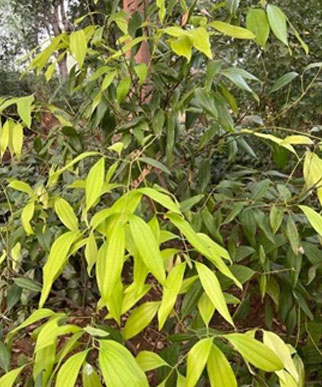 Bayleaf
Bayleaf
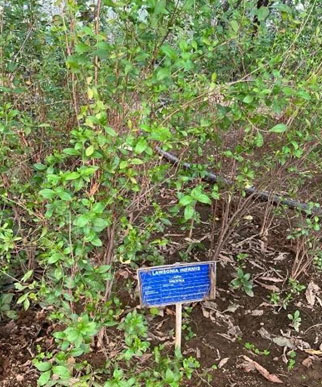 Lawsonia Inermis
Lawsonia Inermis
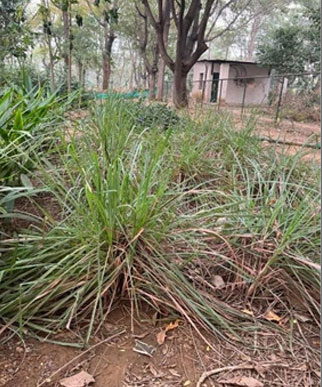 Lemon Grass
Lemon Grass
 Aloe Vera
Aloe Vera
Amity University Haryana organized a ‘Tree Plantation Drive’ near the campus premises, under the Government of India initiative "Ek Ped Maa Ke Naam".
The primary aim of the tree plantation drive was to enhance campus biodiversity while fostering environmental awareness among students and staff. The initiative sought to educate participants on the ecological benefits of trees, promote environmental responsibility within the university community, and encourage collective efforts toward sustainability.
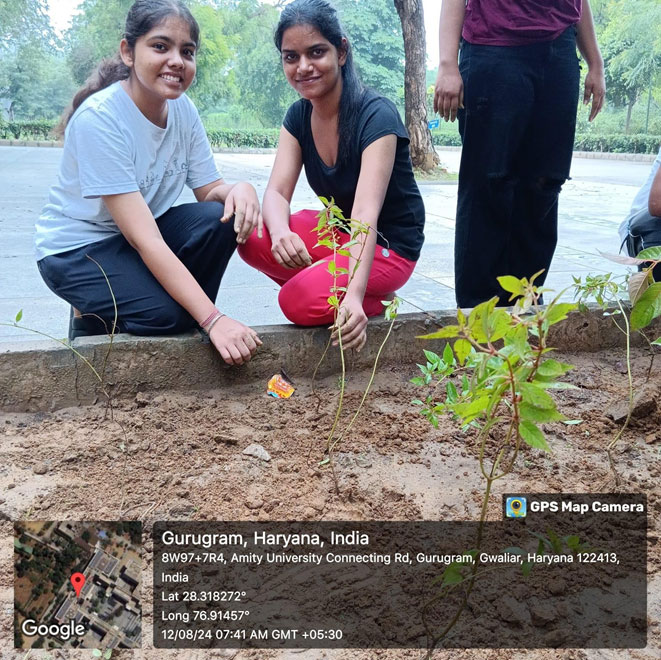
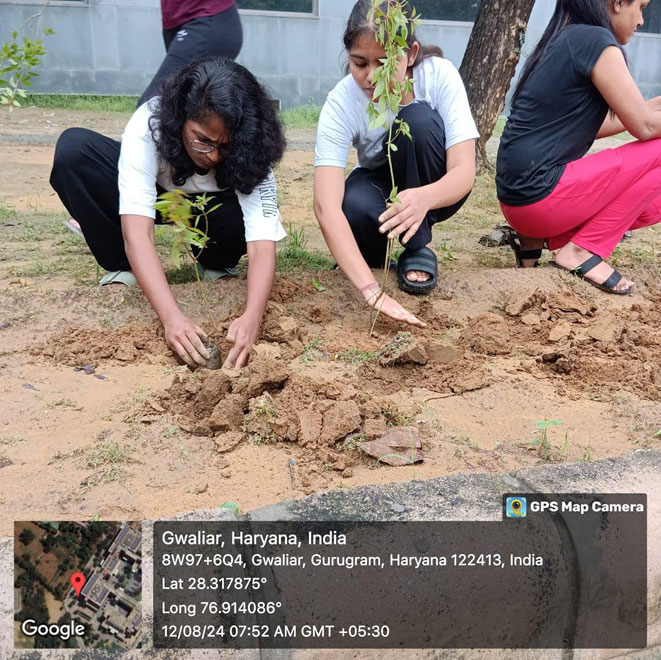
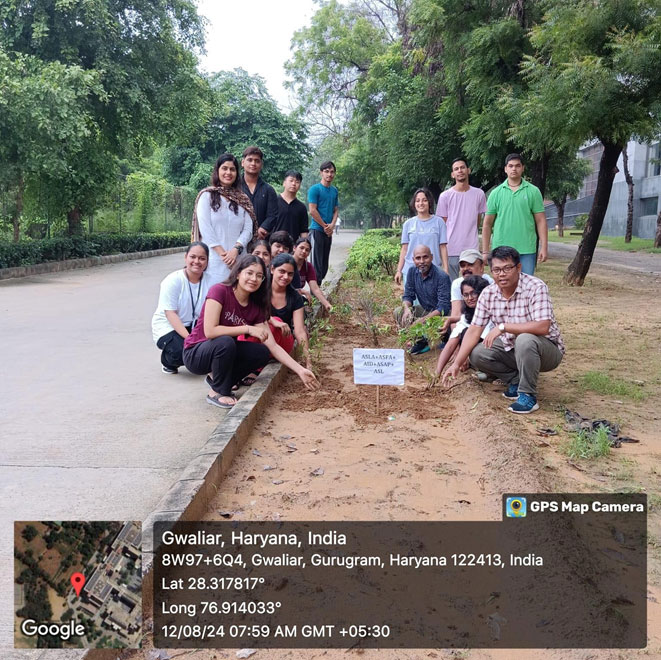
Amity University Haryana has implemented a water reuse policy as part of its commitment to sustainability and efficient water management. Here are some key elements of this policy:
- Greywater Recycling: The university treats and reuses greywater from sinks, showers, and laundry for non-potable applications, such as irrigation and toilet flushing. Advanced treatment systems are in place to ensure that recycled water meets safety and quality standards before reuse.
- Irrigation Practices: Reused water is primarily utilized for irrigating campus landscapes, helping to conserve potable water and reduce overall water consumption.
- Monitoring and Maintenance: The university regularly monitors the quality of recycled water and maintains treatment systems to ensure their efficiency and effectiveness.
- Awareness and Education: Initiatives are in place to educate the campus community about the importance of water reuse and its role in sustainable practices.
By implementing this water reuse policy, Amity University Haryana not only promotes conservation but also contributes to the sustainability of its campus environment.
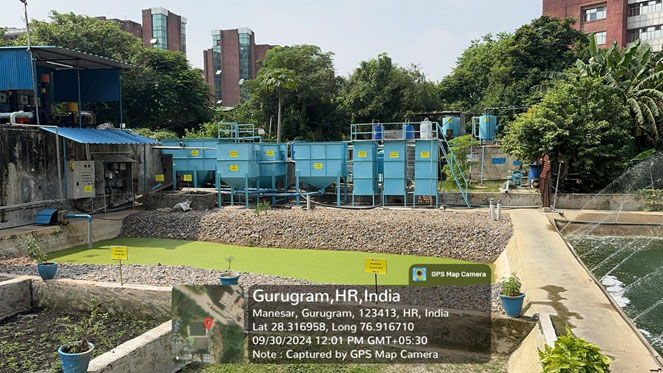 Greywater Recycling at AUH
Greywater Recycling at AUH
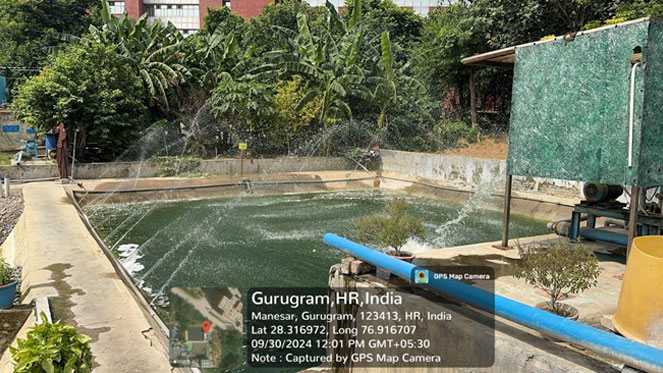 Greywater Recycling at AUH
Greywater Recycling at AUH
© 2021 Amity University Gurugram. All Rights Reserved.
